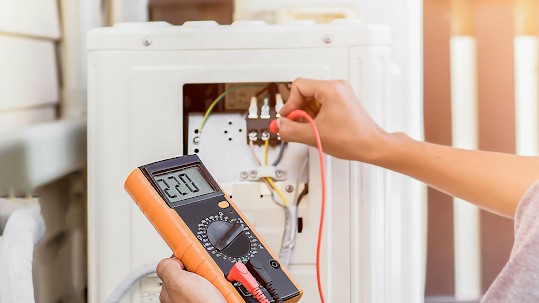Ensuring the proper refrigerant for your HVAC unit is very important for its optimal performance and longevity. With changing regulations and environmental concerns, choosing and maintaining the right refrigerant has become more complex. This guide aims to provide you with comprehensive insights into selecting and managing the appropriate refrigerant for your HVAC system.
 |
| Right Refrigerant for Your HVAC |
Choosing the Right Refrigerant:
Selecting the right refrigerant involves considering factors such as efficiency, environmental impact, and compliance with regulations. As of my knowledge cutoff in January 2022, the most common types of refrigerants include hydrochlorofluorocarbons (HCFCs), hydrofluorocarbons (HFCs), and newer environmentally friendly options like hydrofluoroolefins (HFOs). Keep in mind that regulations and availability might have changed since then, so it's crucial to stay updated.
Environmental Impact and Regulations:
Many countries are phasing out high Global Warming Potential (GWP) refrigerants due to their contribution to climate change. It's essential to be aware of the regulations in your region and choose refrigerants with lower environmental impact. For instance, some HFOs have a significantly lower GWP compared to traditional HFCs.
Maintaining the Refrigerant:
Once you've selected the appropriate refrigerant, maintaining its integrity is vital. Regular HVAC system inspections and maintenance checks should be conducted to detect and address any leaks promptly. The leakage of refrigerants not only poses harm to the environment but also diminishes the efficiency of your HVAC system, resulting in heightened energy consumption and operational expenses.
Schedule Professional Inspections:
Regular inspections by qualified HVAC professionals ensure that your system is running efficiently and that the refrigerant levels are within the recommended range. Professionals can also identify and repair any leaks, preventing further damage to the system.
Proper Refrigerant Handling:
Follow manufacturer guidelines for handling refrigerants and ensure that technicians are certified to work with specific types. Mishandling refrigerants can pose serious risks, including environmental harm and potential health issues.
FAQs:
FAQ 1: How often should I check my HVAC system's refrigerant levels?
Answer:
It's recommended to check your HVAC system's refrigerant levels at least once a year. However, if you notice a decrease in cooling/heating efficiency or any unusual sounds, an immediate inspection is advisable. Regular professional maintenance is essential to ensure optimal performance.
FAQ 2: Can I retrofit my existing HVAC system to use a more environmentally friendly refrigerant?
Answer:
In some cases, retrofitting an HVAC system to use a different refrigerant may be possible. Still, it depends on the system's design and compatibility. It's crucial to consult with HVAC professionals to assess feasibility and ensure compliance with local regulations. Retrofitting is not always the best solution, and in some cases, upgrading to a more modern system might be a more practical choice.
Conclusion:
Maintaining the right refrigerant for your HVAC system is a multifaceted task that requires careful consideration of environmental impact, regulations, and system efficiency. By choosing wisely and implementing proper maintenance practices, you can ensure the lifespan and optimal performance of your HVAC system while minimizing your environmental footprint. Stay informed about evolving regulations and consult with HVAC professionals for personalized advice tailored to your specific needs and circumstances.




No comments:
Post a Comment